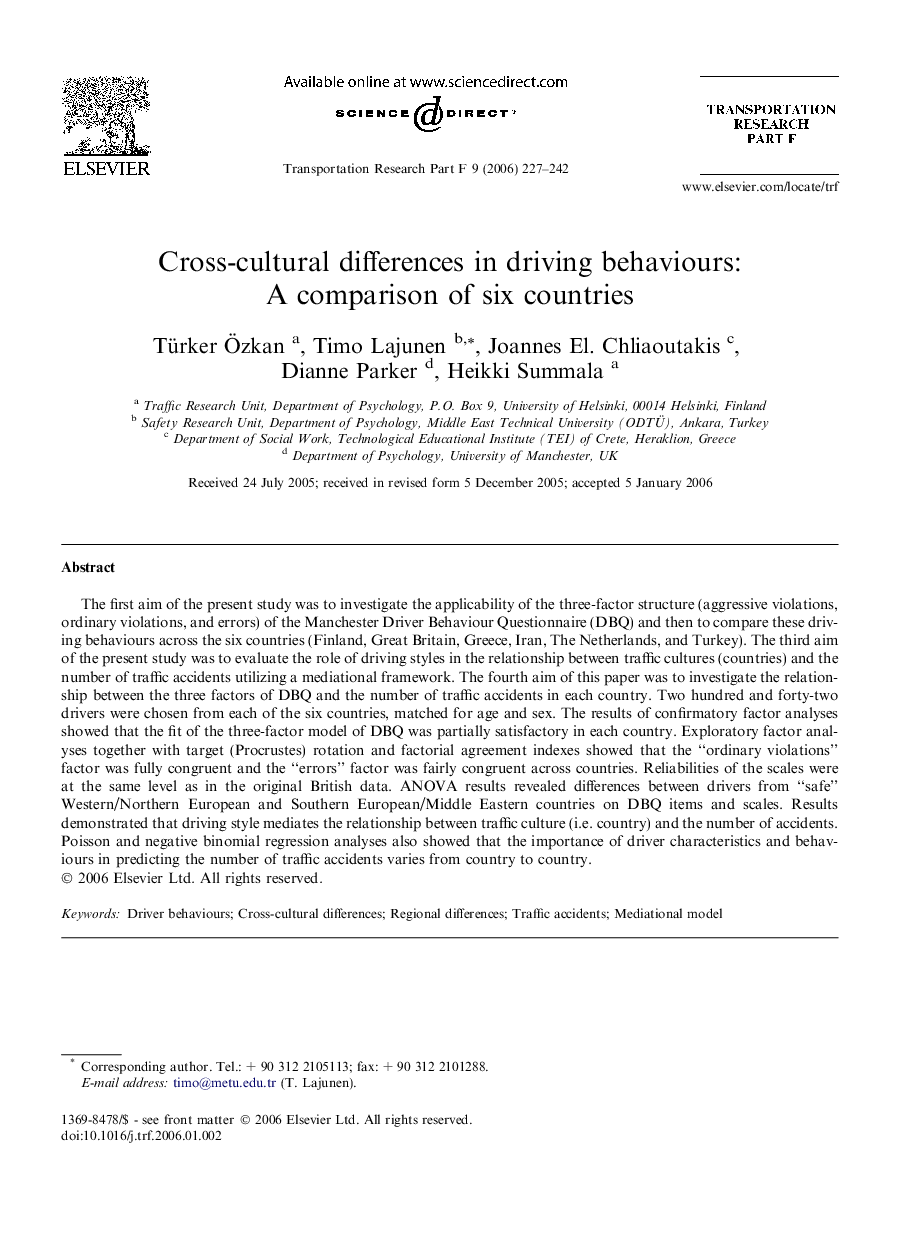ترجمه فارسی عنوان مقاله
تفاوت های بین فرهنگی در رفتار رانندگی: مقایسه شش کشور
عنوان انگلیسی
Cross-cultural differences in driving behaviours: A comparison of six countries
| کد مقاله | سال انتشار | تعداد صفحات مقاله انگلیسی |
|---|---|---|
| 40277 | 2006 | 16 صفحه PDF |
منبع

Publisher : Elsevier - Science Direct (الزویر - ساینس دایرکت)
Journal : Transportation Research Part F: Traffic Psychology and Behaviour, Volume 9, Issue 3, May 2006, Pages 227–242
ترجمه کلمات کلیدی
رفتار راننده - تفاوت های بین فرهنگی - تفاوت های منطقه ای - تصادفات رانندگی - مدل میانجی
کلمات کلیدی انگلیسی
Driver behaviours; Cross-cultural differences; Regional differences; Traffic accidents; Mediational model

